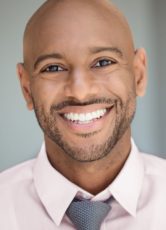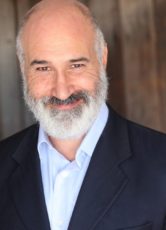
Life is not a matter of holding good cards, but sometimes, playing a poor hand well.”
— Jack London
Some actors found a way to overcome considerable adversity in their personal lives before finding a fuller sense of purpose and conviction. Pressing on through the tough times, they managed to find success as working, celebrated actors or influencers.
Charlize Theron
As a 15 year old, Charlize Theron witnessed her mother kill her father in self-defense. Theron described her father as staggeringly drunk that night as he shot a gun through a blockaded door where she and her mom sought refuge. Charlize’s childhood trauma would certainly shape her future one way or another. Still a teenager, she moved to New York for a brief modeling stint and to pursue ballet. But when her knees gave out, making ballet no longer an option, Theron fell into a major depression.
Something within her, a sense of purpose along with the support of her devoted mother, helped Charlize move forward. Her mom purchased her a one-way ticket to Los Angeles so Charlize could search for work in Hollywood. Soon, the stunning beauty caught the eye of a talent agent as she shouted at a bank teller who refused to cash her check, and the agent became her manager. Disappointingly, Theron was repeatedly offered vacuous, provocative roles. She fired her manager, recalling, “Playing the same part over and over doesn’t leave you with any longevity. And I knew it was going to be harder for me, because of what I look like, to branch out to different kinds of roles.”
This determination paved the way to Theron portraying serial killer Aileen Wuornos in “Monster,” a role for which she gained weight and took on unbecoming facial features and mannerisms. She’d go on to win an Oscar for the performance, solidifying her future as a major Hollywood player.
Lance Reddick
“John Wick” actor Lance Reddick originally didn’t want to become an actor—his goal was to become a working musician. Reddick was disheartened to find he was continually shelling out money to do more demo tapes at a particular recording studio, and nothing ever seemed to come of it. When his daughter was about to turn one year old, Reddick was juggling three jobs—double-shifting as a waiter and as a newspaper delivery worker. One fateful day, he remembers getting off from working overtime at a restaurant, and he went to his shift at the Wall Street Journal office where he tore a back muscle while lifting a heavy bundle.
Too stressed to take time off from work to seek medical attention, the injury only grew worse. It wasn’t long before Reddick’s back injury had him stuck in bed, and he realized he needed to make a drastic change. He recounted: “I’m looking at the ceiling and I’m thinking, ‘We need the money; I need to be working.’ But I was also thinking, ‘You know what? If I keep doing this, I’ll be doing this for the rest of my life. How do I think outside the box?’ I thought, ‘Well, I don’t have any money; I don’t have any connections. What do I have?’ I said, ‘Well, I know I can sing, and I know I can act ’cause I acted in college,’ so I said, ‘Well, let me try that.’”
Reddick searched the local papers for audition opportunities, and he was encouraged to discover he was able to land various roles in theater, as well as episodic work in television.
He then landed a lead role in the HBO series “The Wire,” playing Cedric Daniels, lieutenant of the Baltimore Police Department’s Narcotics Unit, which ran for five seasons. Next, Reddick was cast in “Fringe” as Phillip Broyles, head of the FBI department investigating paranormal activities, and moving forward, he played the concierge Charon in all three installments of the “John Wick” franchise.
Joaquin Phoenix
As a young child, the “Joker” actor and his brothers traveled through Central and South America with his parents who were members of a controversial religious cult called Children of God. The group would later be accused of sexual misconduct from former members. After becoming disillusioned with the cult and disaffiliating from it, the Bottom family moved to California and changed their last name to “Phoenix.” “We were always singing and playing music, and we were encouraged to express ourselves,” Joaquin recalls of his childhood. He soon found representation with a talent agency. “We used to live deep in the Valley, and the station wagon would break down all the time when we’d go on auditions. But I loved those moments when you’d walk into an audition or onto a set and have an experience you didn’t know you were capable of and didn’t really even know where it came from.”
Jamie Lee Curtis
“Halloween” actress Jamie Lee Curtis is proud to be over 20 years sober. Starting in 1989, she concealed her addiction to painkillers for a decade. “I was ahead of the curve of the opiate epidemic,” the scream queen told People magazine. “I had a 10-year run, stealing, conniving. No one knew. No one.” After a cameraman said he couldn’t shoot her due the the bags under her eyes, Curtis underwent a cosmetic procedure to reduce puffy eyes. She was prescribed painkillers, but continued to “anesthetize” herself on a daily basis until becoming sober in 1999. “Getting sober remains my single greatest accomplishment,” she asserts. “Bigger than my husband, bigger than both of my children, and bigger than any work, success, failure. Anything.” The “Trading Places” star continues to attend recovery meetings and share her experiences with those who are currently in the throes of addiction.
Tyler Perry
In his book “Higher is Waiting,” Tyler Perry, describes how his success as an adult stands in stark contrast to the hardship he experienced in his childhood. Growing up in New Orleans, Perry endured an abusive father, as well as sexual abuse. But his creative journey started one day while watching “The Oprah Winfrey Show,” on which he heard about the therapeutic benefits of writing about your life experiences. With this advice, Perry started penning a series of letters to himself, often documenting personal experiences, as well as the words and actions of the people with whom he grew up. Indeed, he says he has “trunks of experiences” that he refers to now in his work.
A friend who came across the letters said they would make for a great play, and in turn, Tyler set a goal of writing one. With no money to spare, Tyler would sneak into theaters during intermission so he could watch the second act of various plays, and this is how he learned to write for theater. In time, he put on his own theatrical productions, which continued unrewarded for five years, with Perry sleeping in his small car.
Perry’s persistence and hard work eventually paid off. He gradually improved his abilities and developed a devoted following in Atlanta where he raised $5.5 million to fund his first film “Diary of a Mad Back Woman,” which went on to gross $50 million. With the success came the realization he could create his own studio in Georgia to pursue his own creative endeavors, as opposed to being dependent on Hollywood. Among the films shot at Perry’s 330-acre studio is Marvel’s “Black Panther.”




